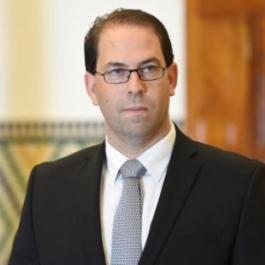
Is Democracy in the Arab World a Trap? Reflections on the Arab Spring and the Case of Tunisia
Former Prime Minister of the Republic of Tunisia (2016-2020) Youssef Chahed
November 10, 2022 · 12:00 pm—1:00 pm · 202 Jones Hall and Zoom
The Institute for the Transregional Study, NES

Political messaging to Arab countries before 2011 strongly conveyed the idea that establishing democracy would enable them to join the club of advanced and developed countries. They would not only enjoy freedom but also a standard of living comparable to their neighbors on the north shore of the Mediterranean. Eleven years after the Arab spring events a growing perception exists in the Arab world that democracy is not the ideal form of governance nor an avenue for attaining prosperity. In Tunisia, for example, many people believe that democracy has led to a weakened economy and impoverishment. Many perceive the democratic system to have exacerbated social injustices, weakened the authority of the state, and resulted in even more corruption and disorder than in the past.
This talk will attempt to explain this perception in the Arab world. It will also try to explain why democracy, despite the many sacrifices and deaths, has not delivered economic growth and prosperity. Why is it that most Arab countries are not democracies? Are the reasons cultural, educational, or something else entirely? Is democracy a trap for the Arab world?
Prime Minister Youssef Chahed is the youngest appointed head of government of the Republic of Tunisia, where he served from August 2016 to February 2020. Previously, he was Minister of Local Affairs and Secretary of State for Fisheries. Prime Minister Chahed is an advocate for freedom of speech, the press and the protection of civil liberties in Tunisia since the January 2011 revolution. During his mandate, he led a successful war against terrorist groups such as ISIS and Al Qaeda. He was a leader in the Arab world in the fight against corruption, smugglers, and mafia barons. Despite a difficult economic context, he succeeded in addressing Tunisia public finance issues based on a program signed between Tunisia and the International Monetary Fund and World Bank. Prime Minister Chahed earned his Ph.D. in agribusiness sciences in 2003.















